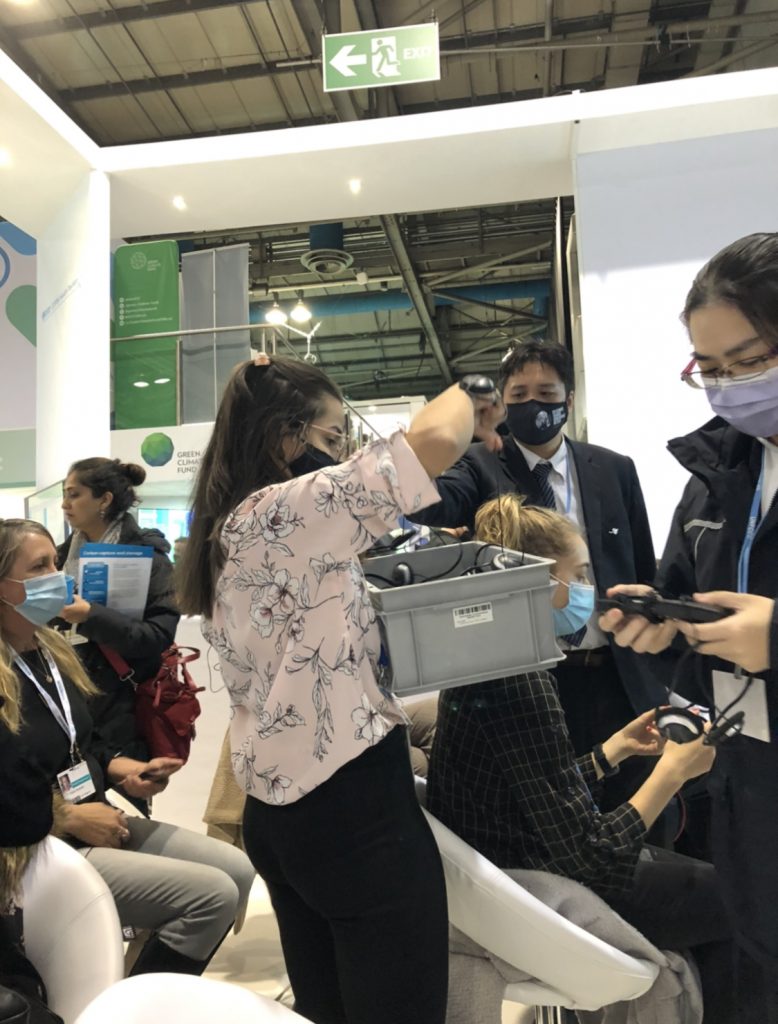Today marks the end of the World Leaders Summit! For context, each day has a theme in which discussions follow — it’ll be focused on finance tomorrow! (check out the Presidency Programme here)
Here is the set of sessions that I decided to attend today (see below). My goal today was two-fold: first, continue learning about the impacts of unequal representation on the ground, while the second was attempting to informally chat with national delegates / party members.
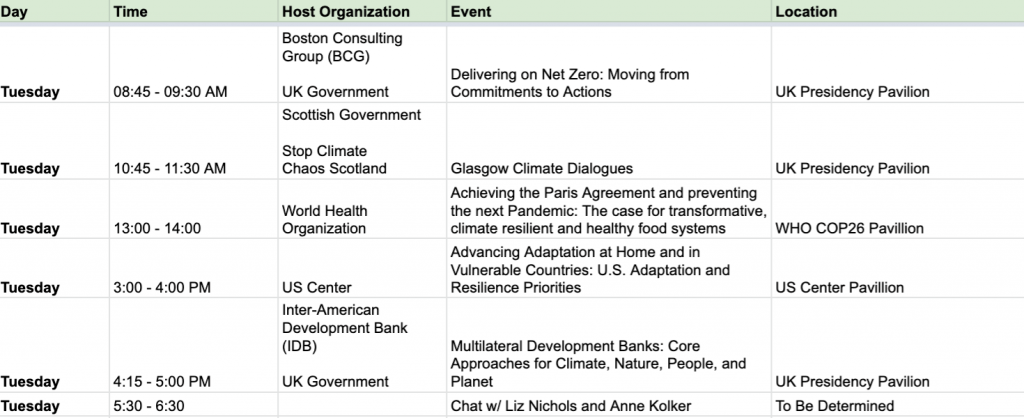
Despite being 10 minutes late, I joined Melissa at event titled: Glasgow Climate Dialogues, where they invited folks to think about how to improve participation by the Global South at COPs in order to hold a “just transition.” They shared with us a communique which includes efforts on access, participation, adaptation, and more.
“Every effort possible must be made by the COP26 Presidency and others to get delegations from all parties to COP26 – especially from the Global South. This effort must include enhancement in the rollout of vaccines, arrangements for hotel quarantine, adding capacity to visa processing, and ‒ as a fall back ‒ creation of global hubs to enable virtual access where travel is impossible.”
– Excerpt from the Communiqué (Glasgow Climate Dialogues)
One of the panelists, Oxfam UK CEO Danny Sriskandarajah, reified the “moral imperative to include the most marginalized and the future generations” within our climate discussions. While Sriskandarajah’s statement is inspiring and one that I agree with, I often find myself frustrated in thinking about this given that most diversification and inclusion efforts does not necessarily equate to actionable change. This led to me asking:
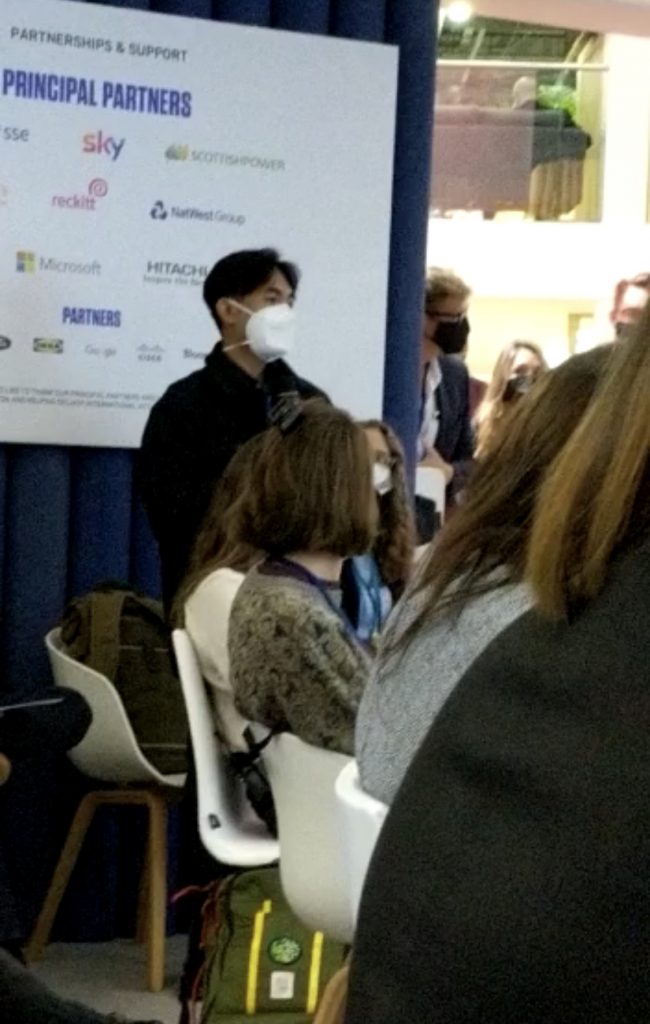
Q: A larger issue of conferences such at this is that it often requires “formal and technical” and I would even argue a western-centric knowledge to participate… How can institutions like this not just include, but importantly, center these voices to actually be decisive and meaningful?
Fellow panelists Margaret Naggujja and Julius Ng’oma agreed with my statements, with Ng’oma discussing how the complexities of negotiations at COPs can be detrimental to certain groups. For example, Ng’oma recalls the story of the Malawi delegation finding it difficult to navigate these spaces, adding onto another challenge to their work. Sriskandarajah circled back at the end also agreeing, ending the discussion with a call to action for COPs to have a “participation revolution.” To watch the dialogues (and hear me ask my question!), check out this video: Glasgow Climate Dialogues.
Following this, I had some time in between my next couple of sessions, where I had the chance to interview party members and delegates of South East Asian countries Thailand and Indonesia. We chatted about the difficult and/or ease of getting to COP26, goals and achievements of their respective nations, and also their level of their optimism for COP26. (Side note: I actually interviewed two other European delegates who later revoked their consent to have their thoughts and photos published). Below I share some of the insights from my interviews.
DISCLAIMER: The two members provided their consent for their statements to be summarized in this blog, for their photos to be included, and also wanted to make clear that all of their statements do not necessarily reflect the entire opinion of the delegation.
First, I interviewed Indonesian journalist Jessica Wulandari, who mentioned that she and the rest of the delegates had a surprisingly easy process getting into the UK in terms of getting their VISAs. As a reporter of the Indonesian delegation, she mentioned that her main goal was to keep the Indonesian community engaged throughout the next two weeks, especially on their concerns on international climate funding. Wulandari is referencing the $100 billion climate fund that countries are currently negotiating on how to finance and distribute. Taken all this into consideration, Wulandari remains optimistic for the outcomes that will come from COP26.
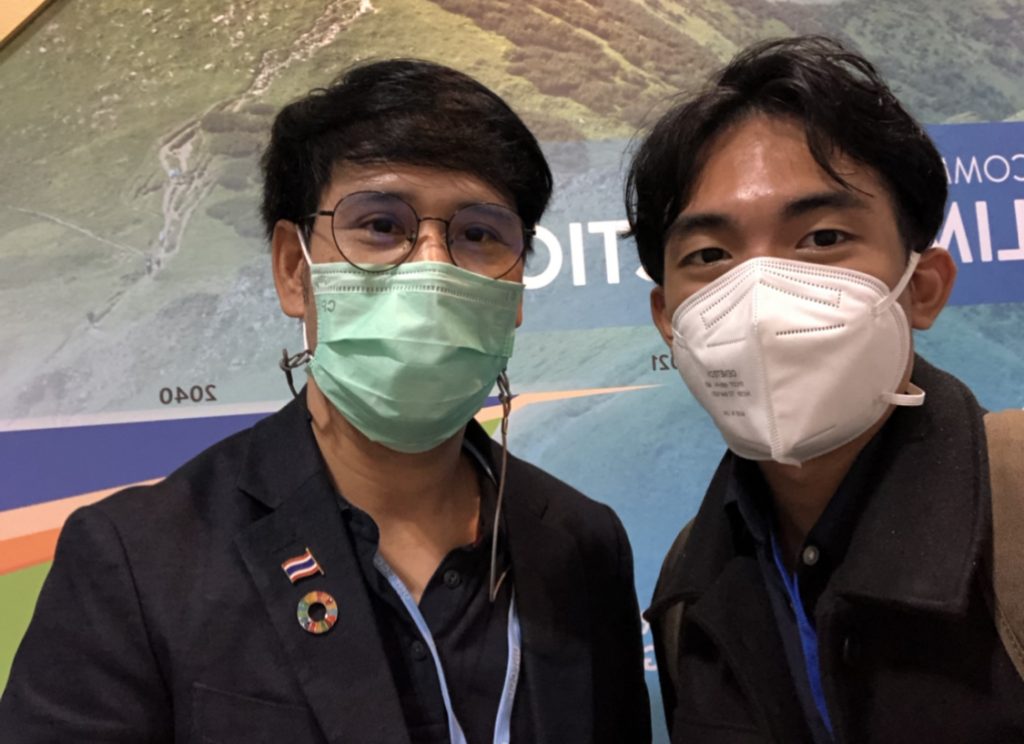
Daniel w/ Wirat Songsri 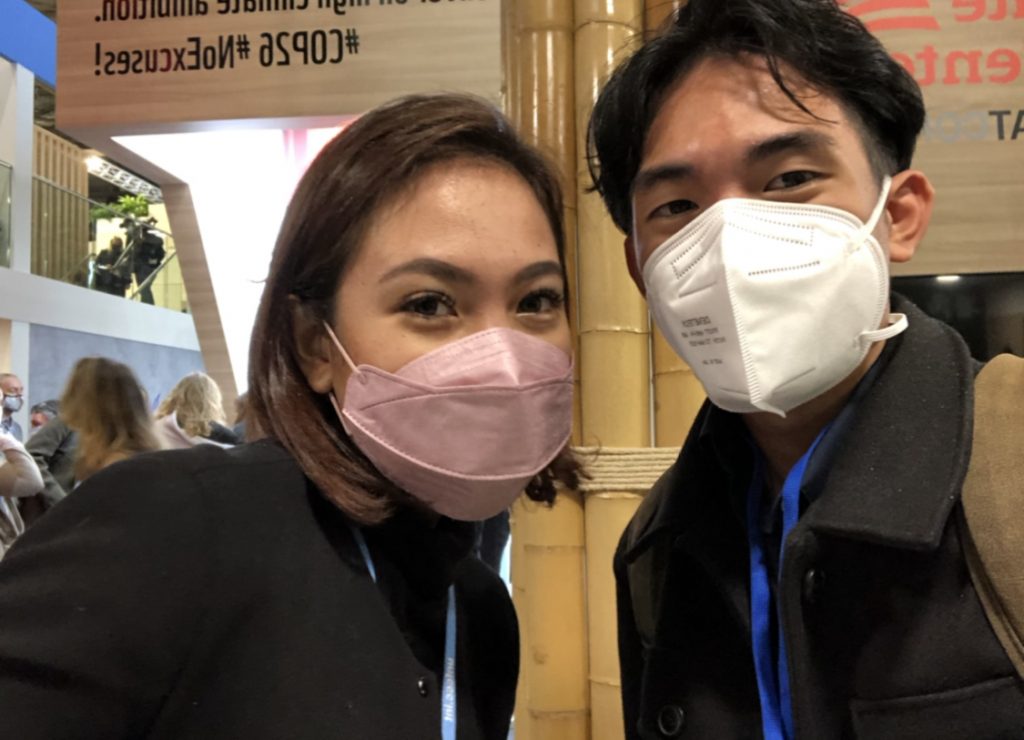
Daniel w/ Jessica Wulandari
For the Thailand delegation, I interviewed Environmental Analyst Wirat Songsri who, unlike Wulandari, mentioned the challenge of attending due to the process of quarantine and financing it. When asked about Songsri’s goals, he cited Thailand Prime Minister’s Prayut Chan-o-cha goal of reducing greenhouse gas emissions by 40% by 2030, eventually working towards carbon neutrality by 2050. Songsri also remains optimistic in achieving these goals, but highlighted the necessity for international support to reach these efforts.
Admittedly, it was pretty difficult approaching these busy folks and getting them to speak to a random college student standing around with an iPhone in hand taking notes. But I am immensely grateful that they took the time to chat with me.
Filled with thousands of people everyday, COP26 is increasingly overwhelming to navigate. Although my status as an observer means that there are (many!) limits to my participation, I am still trying to make use of my time here by connecting with people who mainstream media do not often hear from. It was an extremely jam packed day today (and I can only expect the next couple of days to get busier). While I take a rest after today, please enjoy this photo of Alicia being told to distribute headphones for an event at the World Health Organization pavilion.
